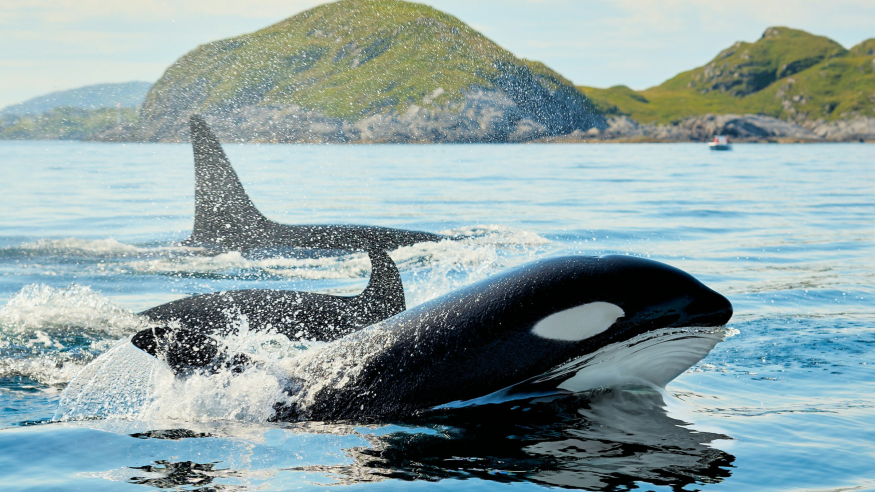
A terrifying encounter unfolded off the coast of Cascais, Portugal, last week when a pod of killer whales rammed two sailboats, sinking one and crippling another.
Nine people were dramatically rescued without injury, but the rare orca attacks have alarmed sailors and reignited global debate over why these powerful predators are targeting vessels in Iberian waters.
Orca Pod Attacks Boats in Portugal
The first incident happened around 12:30 pm near Cascais on 13 September, as reported by The Inertia. Five people were on board a yacht when orcas began striking the hull and rudder. A nearby tourist boat evacuated the passengers. They later watched their vessel sink beneath the surface.
Later that day, the same pod likely targeted a second boat in the same area. Four people were rescued without harm. Both vessels were heavily damaged. Lisbon search and rescue crews and lifeguards from Cascais responded quickly.
Since May 2020, more than 673 interactions between orcas and boats have been recorded in waters off Spain, Portugal, and the Strait of Gibraltar. The growing number of cases has drawn concern among sailors and marine authorities.
Why Orcas Attack Boats
Scientists continue to debate the motive behind these events. Some believe the whales are not being aggressive but playful.
'I am more inclined to think it is playful interaction... When you have a four-tonne animal playing with a sailboat, the perception for the people on board is that they are being attacked, but if you look at their movement underwater, it looks like a playful event,' said Dr Javier Almunia, of the Loro Parque Foundation in the Canary Islands, via The Independent.
Renaud de Stephanis, a researcher on Iberian orcas, added: 'My feeling after working for three years with these killer whales is that it is a game. For them, the sea is super-boring. Kids need to play with anything. Killer whales are the same.'
How Strong Are Orcas?
Orcas, also called killer whales, can weigh up to four tonnes. Their strength allows them to strike small vessels with enough force to cause structural damage.
Dr Almunia noted: 'These animals have the strength to probably sink one of these sailboats, but it has only happened in a few cases when it has broken the fibreglass. But in those cases, they were playing with the rudder.'
British yachtsman Heath Samples described his own encounter: 'We thought, if we are thrown in the water, what are they going to do to us? They have just thrown a 10-tonne yacht all over the place.'
Are Orcas Really Friendly to Humans?
Despite recent incidents, experts stress that wild orcas rarely harm humans. They usually display curiosity rather than aggression. Orcas' specialised diets exclude humans, and their intelligence likely allows them to identify people as non-prey. Some pods may even observe cultural restrictions against harming humans.
Still, risks remain. Startling or provoking them could trigger aggression. Even playful behaviour may cause accidents, as powerful strikes can sink boats. Captive orcas have historically shown far more aggression than wild ones.
What Should Humans Do During an Orca Encounter?
Specialists advise observing from a distance and respecting their space. Feeding or provoking orcas should be avoided. Even when behaviour looks playful, danger is present.
Spanish authorities recommended in 2022 that boats sail closer to the coast at 30 metres depth. According to de Stephanis, this reduced interactions by 80 per cent.
He said: 'The whales can damage the boats, but it is the same damage as if the boat had hit a reef. Today, the orcas are just like a reef. It is just a problem of navigation.'
With growing reports of Portugal and Spain, sailors are urged to remain cautious. For now, orca encounters remain unpredictable, though researchers continue to monitor the trend.
Originally published on IBTimes UK
© Copyright IBTimes 2025. All rights reserved.





